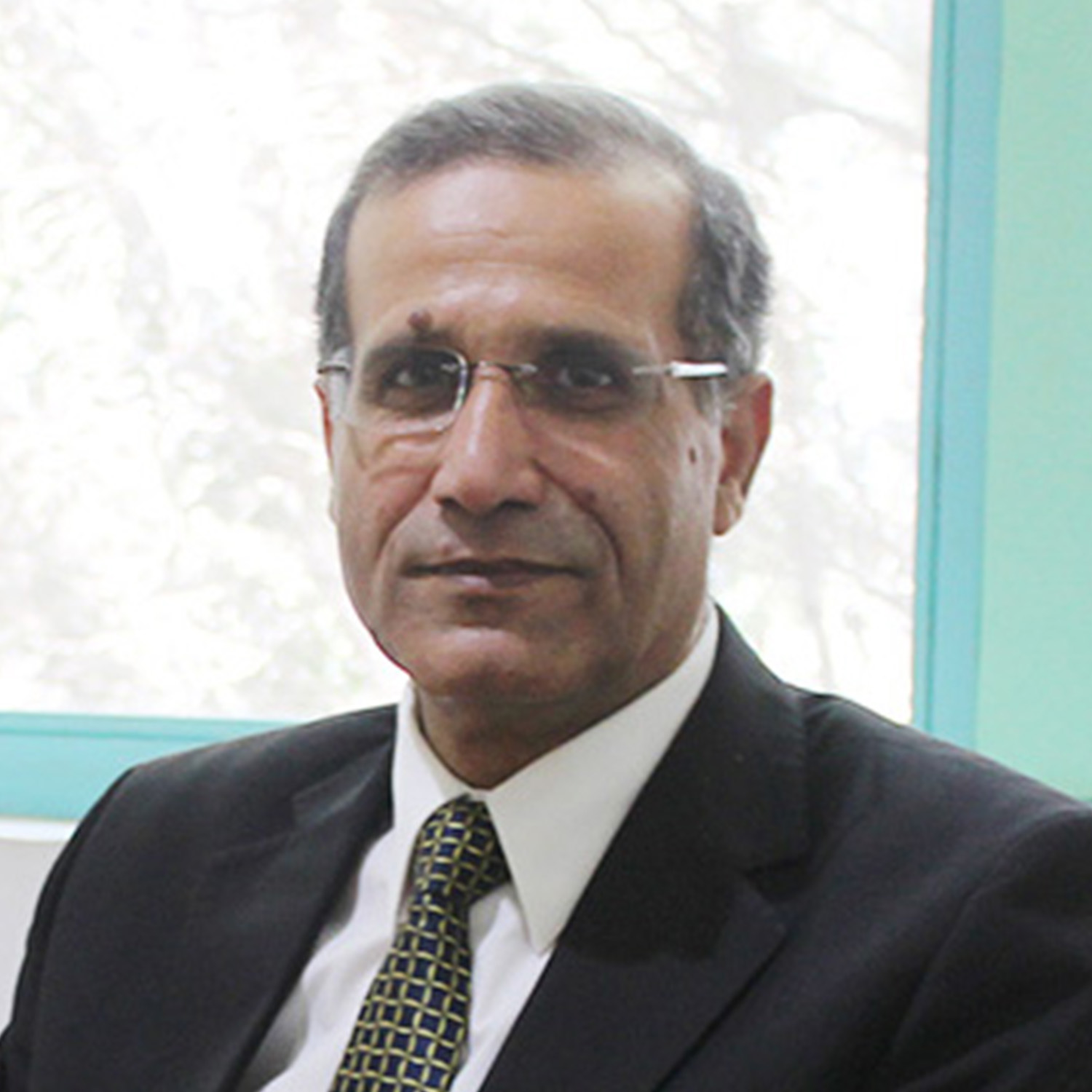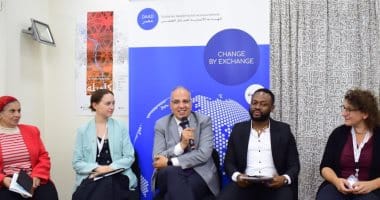[:en]Helwan Technology discusses a master’s thesis on the performance of photovoltaic cells according to climatic conditions. A master’s thesis study, discussed at the Department of Electronics Technology, Faculty of Technology and Education, Helwan University, revealed: “the comparative performance evaluation of different types of photovoltaic cells according to climatic conditions and the design of an interactive e-book.” The study aims to: The performance of three of the most famous types of photovoltaic panels, which are mono and polycrystalline silicon panels and thin-film panels, was examined in the Egyptian country for the first time. (Cairo – Alexandria – Tanta – Beni Suef – Assiut – Sohag – Aswan – Hurghada – Farafra – Heliopolis – Helwan) The practical part was conducted inside Heliopolis University on the abovementioned three types. (PVSOL) and the practical results within Heliopolis University, and it was concluded that the simulation and scientific results are almost the same, so it was recommended to use the (PVSOL) program in conducting the simulation for the speed, ease, and accuracy of the program. In less than 5 minutes, an experiment was conducted on a segment of students of the College of Technology and Education very quickly and smoothly The researcher, Sherif Mohamed Hassan El-Sayed, was prepared at the Faculty of Technology and Education under the patronage of Dr. Ibrahim Lotfy, Dean of the Faculty of Technology and Education – Helwan University, and under the supervision of Dr. Adel Abdel Moneim Al-Samahi, Professor of Electrical Machine Control – Faculty of Engineering – Helwan University, and Dr. Ayman El-Sayed El-Sayed Hajjaj, Assistant Professor in the Department of Electronics Technology – Faculty of Technology and Education – Helwan University and Dr. Tayseer Mostafa Mahmoud, Educational Technology Expert – Ministry of Education Dr. Mohamed Amin Abdel-Gawad Mukhaimer Assistant Professor of Curriculum and Teaching Methods of English Language – Faculty of Education, Beni Suef University, Dr. Ashraf Mohamed Mohamed Abushousha, Assistant Professor, Department of Radiological Engineering – Atomic Energy Authority. The study, in which the researcher received an excellent grade, unanimously showed that interactive electronic simulation has a significant role in the development of students of the College of Technology and Education. The study explained to “Sada Al-Balad” that interactive electronic simulation programs are maximized instead of traditional education because of their significant impact on raising the level of students. The simulation-based e-book, the research subject, was used to develop the skills and knowledge of students of the Faculty of Technology and Education – Electronics Technology Division – Helwan University. The study explained: 1. The necessity of using simulation-based e-learning in teaching educational courses because of its many advantages. 2. One of the design models is adopted to produce simulation programs, and the multiplicity of these models allows for choosing the appropriate model for the production team and the available capabilities. 3. Attention to producing simulation programs according to specific technical standards to help achieve the required educational goals. 4. The necessity of improving traditional teaching methods that depend on memorization and memorization and the use of innovative new educational formulas that contribute to improving the learning process. 5. The study concluded that the results of the two research tools proved the program’s effectiveness in developing the skills and knowledge of technology and education students. 1. Suggestions for future work: Conducting more studies on the field of solar energy in general and photovoltaic panels and integrating them with solar concentrators to make a hybrid system in particular, the researcher found a few studies that focused on this subject. 2. The current research was limited to a comparative study of photovoltaic panels in the Egyptian environment in the sun belt and also dusty, so future research may address additions to improve the quality of photovoltaic panels, increase productivity and reduce costs within the framework of other educational stages.[:ar]تكنولوجيا حلوان تناقش رسالة ماجستير حول اداء الخلايا الكهروضوئية تبعا للظروف المناخية كشفت دراسة رسالة ماجستير نوقشت بقسم تكنولوجيا الإلكترونيات بكلية التكنولوجيا والتعليم جامعة حلوان، عن ” تقييم الأداء المقارن لمختلف أنواع الخلايا الكهروضوئية تبعا للظروف المناخية وتصميم كتاب الكتروني تفاعلي “. تهدف الدراسة إلى : فحص اداء ثلاثة من أشهر أنواع الالواح الكهروضوئية وهي الالواح السليكونية أحادية ومتعددة البلورة (Mono and Poly crystalline) والواح الأغشية الرقيقة (Thin-film) في القطر المصري لأول مرة وتم إجراء محاكاة عن طريق برنامج (PVSOL) ل11 منطقة مصرية داخل المحافظات المختلفة وهى كالتالي (القاهرة – الإسكندرية – طنطا – بنى سويف – أسيوط – سوهاج – أسوان – الغردقة – الفرافرة – هليوبوليس – حلوان ) وتم إجراء الجزء العملي داخل جامعة هليوبوليس على الثلاثة أنواع المذكورة أعلاه وتم تجميع نتائج البحث لمدة عام كامل وتم مقارنة نتائج المحاكاة عن طريق برنامج (PVSOL) والنتائج العملية داخل جامعة هليوبوليس وتم التوصل إلى أن النتائج المحاكاة والنتائج العلمية تكاد تكون نفس النتائج لذلك تم التوصية باستخدام برنامج (PVSOL) في إجراء المحاكاة لسرعة وسهولة ودقة البرنامج وتم إنشاء كتاب إلكتروني لطلبة كليات التكنولوجيا والتعليم بحيث يقوم الطلاب بعمل محاكاة أونلاين في أقل من 5 دقائق وتم إجراء تجربة على شريحة من طلبة كلية التكنولوجيا والتعليم بمنتهى السهولة والسلاسة أعد الدارس الباحث شريف محمد حسان السيد بكلية التكنولوجيا والتعليم برعاية الدكتور إبراهيم لطفي عميد كليه التكنولوجيا والتعليم – جامعة حلوان وتحت إشراف كل من الدكتور عادل عبد المنعم السماحي أستاذ التحكم فى الآلات الكهربية – كلية الهندسة – جامعه حلوان و الدكتور أيمن السيد السيد حجاج استاذ مساعد بقسم تكنولوجيا الالكترونيات – كلية التكنولوجيا والتعليم – جامعة حلوان و الدكتور تيسير مصطفى محمود خبير تكنولوجيا التعليم – وزارة التربية والتعليم الدكتور محمد أمين عبد الجواد مخيمر أستاذ مساعد المناهج وطرق تدريس اللغة الانجليزية – كلية التربية جامعة بني سويف، الدكتور أشرف محمد محمدابوشوشة أستاذ مساعد بقسم الهندسة الإشعاعية – هيئة الطاقة الذرية. وأظهرت الدراسة التي نالها الباحث بتقدير ممتاز بأجماع الآراء بان المحاكاة الإلكترونية التفاعلية لها دور كبير فى تنمية طلاب كلية التكنولوجيا والتعليم. وأوضح الدراس ل “صدي البلد ” يتم تعظيم برامج المحاكاة الإلكترونية التفاعلية بدلا من استخدام التعليم التقليدى وذلك لما لها آثر كبير فى رفع مستوى الطلاب. وتم استخدام الكتاب الإلكتروني القائم على المحاكاة موضوع البحث فى تنمية مهارات ومعارف طلاب كلية التكنولوجيا والتعليم- شعبة تكنولوجيا الإلكترونيات




